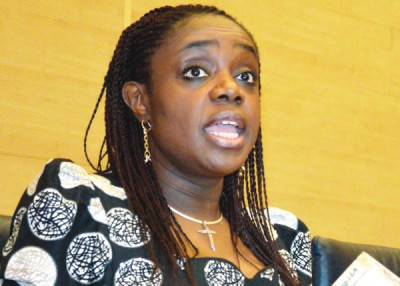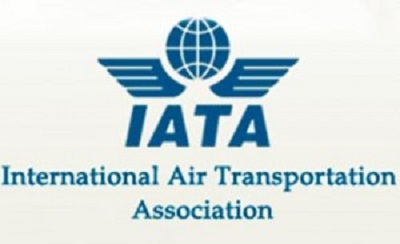Our Economy Has Recorded Significant Growth in Agriculture, Manufacturing, Says Osinbajo
- Explains why Nigeria didn’t sign AfCTA agreement
Vice President Yemi Osinbajo has revealed that the Nigerian economy has recorded significant improvement in the areas of agriculture and manufacturing, since it came out of recession.
The vice president who spoke at the Financial Times Nigeria Summit, which held in Lagos yesterday, said the current 3.6 per cent growth in agriculture showed that the country has improved tremendously in agriculture and manufacturing.
Osinbajo who attributed the growth rate to government’s initiative to diversify the Nigerian economy, said the federal government would continue to invest and diversify the Nigerian economy in a way that would benefit Nigerians and the Nigerian economy.
“We are diversifying the Nigerian economy in the areas of agriculture and manufacturing. Take rice importation for instance, the volume has reduced. Government is focused in creating the right environment for businesses to thrive hence government signed to executive orders on the ease of doing business in the areas of company registration, taxation among others in order to make life easier for people and businesses.
“All these have improved our world bank rating. This government was able to assemble the right people and once you have the right people in place, the economy grows. We have the population and the market size and so what the government is doing is to prepare the ground to attract investors to the country,” he said.
The vice president also stated that the federal government did not sign the African Continental Free Trade Area Agreement (AfCTA) due to the opinions expressed by President Muhammadu Buhari that it would be much wiser to suspend the signing to such a time that all the necessary engagements have been made to the satisfaction of the private sector.
Osinbajo noted that the government has worked very closely with the private sector, adding that it will be wrong not to satisfy the sector and the complaints that they have raised.
He stated that the Manufacturers Association of Nigeria (MAN) and other groups felt that the federal government should not go into the agreement without further consultation.
Osinbajo explained that the concern for the administration is not whether they would not sign the agreement, but signing the agreement would depend on how important it would be to the economy and what type of negotiations would go on.
The vice president further stated that government is taking a look at the issues first to consider the framework, understand the nitty-gritty and then work out ways on how it is going to play out for the private sector partners, industry and trade.
Addressing the issue of security, Osinbajo told his interviewer, the Africa Editor, Financial Times, Mr. David Pilling, that security issues were not peculiar to Nigeria as a country, since other nations are facing different forms of security issues. According to him, what matters is the way the federal government is tackling insecurity in the country. One of the strong initiatives that government is pushing in the area of security, is community policing, because bulk of the terrorists actions are opportunistic attacks, and we are looking at having community policing to avert such attacks and threats to human lives, Osinbajo said.
He explained that Boko Haram took over local government territories in the North-east and had full control of them, but that government has tactically defeated them and regained such territories from their control.
Delivering a paper on ‘Achieving Economic Resilience and Growth in Nigeria’, the Minister of Budget and Planning, Senator Udoma Udo Udoma said the Nigerian economy is beginning to pick up and showing some forms of resilience in economic growth.
According to Udoma, although the Nigerian economy largely depended on one commodity, which is petroleum, and which made it difficult to tackle some of her economic challenges, the economy is already showing signs of resilience, based on the initiative of the present government to increase budget and diversify the economy.
“About 90 per cent of the country’s earning was coming from crude oil and the collapse of oil prices started from 2014. It fell to as low as $30 per barrel in 2016 and at some point, it went below $30. Oil production at that time also collapsed as a result of disruption from oil producing communities in Nigeria, and as a result, the economy slipped into recession. There was drop in GDP growth at that time. So the current government had to work round the clock to revive the situation,” Udoma said.
According to him, the first response of government was to come out with an expanded 2016 budget, so that government could increase spending to enable the private sector spend more money.
The federal government, he said, consulted the state’s through national economic council and it also consulted the National Assembly and the private sector.
“Our target is to grow the economy by additional seven per cent by 2020, and we needed massive investments from the private sector to achieve this. What government did was to launch the Economic Recovery Growth Plan (ERGP) in 2017, to further boost the economy, and it had three-prong objectives-Restoring and sustaining growth, Building a competitive economy, and Investing in Nigerians because the people are the greatest assets of any economy,” Udoma said.
We came up with 60 strategies to achieve the ERGP and among the 60 strategies, we identified five critical areas, which where important to put Nigeria in the path of growth. The bottom line was to drive industrialisation through Small and Medium Enterprises (SMEs).
The ERGP plan was designed to deliver a resilience and more prosperous economy where we grow what we eat and consume what we need and raise the productivity of Nigeria and Nigerians so that we can become a major engine of production, where we can produce for ourselves and for export to neighboring countries and beyond,” Udoma added.
According to him, in 2015, N26.6 billion was allocated for power works and housing but when this government came into power we increased it in 2016 to N422.9 billion and in 2017, it was increased to N553.7 billion.
“In the 2018 budget, we further increased allocations in some areas. Allocation for transport was increased from N14 billion in 2015 to N241.7 billion in 2017. Agriculture from N8.8 billion in 2015 to N103.8 billion in 2017. Security is also key to this government as government allocated more money for defence and interior. Defence went up from N36.7 billion in 2015 to N129.3 billion in 2017, and interior, which include the police tripled from N21 billion in 2015 to N63.76 in 2017.
“We did not only increase allocation of money in the specialised areas, but we also released the monies for their implementation,” Udoma said.








